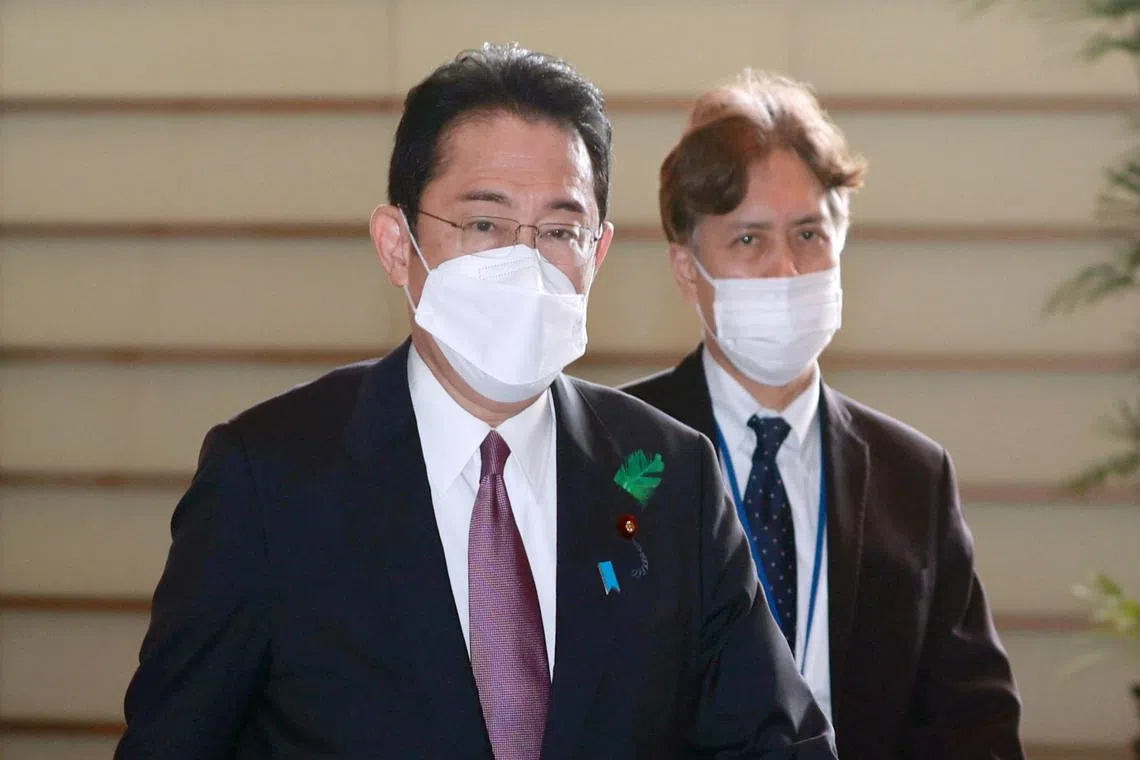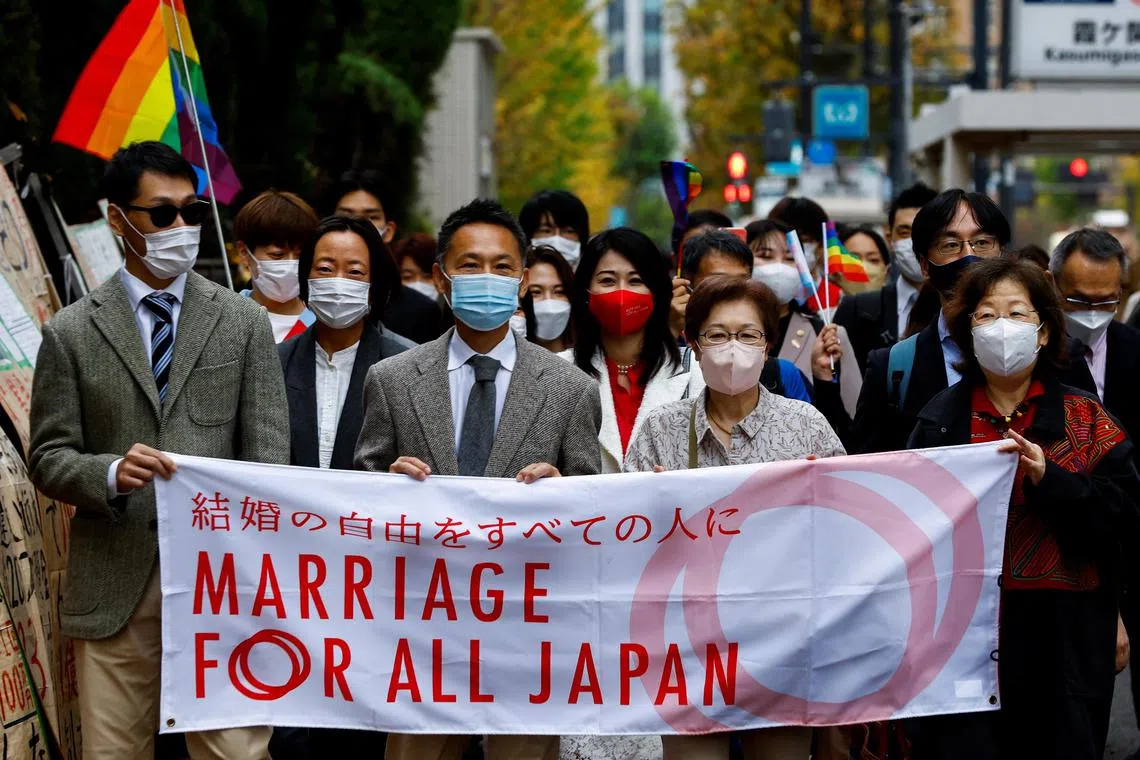Japan PM Kishida sacks close aide for hate speech against LGBTQ community
Sign up now: Get insights on Asia's fast-moving developments

Japanese PM Fumio Kishida (left) with his executive secretary Masayoshi Arai, who said he “hates the sight” of LGBTQ couples.
PHOTO: EPA-EFE
TOKYO – Prime Minister Fumio Kishida on Saturday fired a close aide for hate speech against sexual minorities.
Mr Masayoshi Arai, 55, who was appointed by Mr Kishida as his executive secretary in October 2021, said in off-the-cuff remarks to the media on Friday that he “hates the sight” of LGBTQ (lesbian, gay, bisexual, transgender and queer) couples.
He added that he “shudders at the idea of being next-door neighbours with them”, and that people will “flee the country if Japan legalises same-sex marriage”. He retracted these comments almost immediately after they caused an uproar.
Mr Kishida, whose approval ratings have sunk
“The outrageous remark is completely out of line with the policies of my administration,” he told reporters on Saturday morning. “We aim to build a sustainable and inclusive society that recognises diversity.”
That Mr Kishida acted decisively could be a move to counter widening public perceptions that he is a weak leader.
His reputation took a hit after he seemingly dithered over the dismissals of four Cabinet ministers following a reshuffle in August 2022: two over political funding scandals, one over a gaffe another for his ties with a controversial religious group
Mr Arai, formerly an elite career bureaucrat from the Ministry of Economy, Trade and Industry, apologised for “using expressions that may cause misunderstanding”.
“I feel sorry for causing trouble to the Prime Minister. He does not think like that,” he said. “It is not desirable for officials in posts like mine to say such a thing.”
Mr Arai’s remarks came two days after Mr Kishida told the Diet, or Parliament, that the country should move cautiously
In December, Mr Kishida sacked then Parliamentary Vice-Minister for Internal Affairs Mio Sugita for discriminatory comments against members of the LGBTQ community that she made in 2018, including labelling them “unproductive”.
Activists are urging Mr Kishida to take steps towards legalising same-sex unions ahead of the Group of Seven (G-7) summit of industrialised democracies in Hiroshima in May. Japan is the only G-7 country that does not allow such marriages.

Plaintiffs, lawyers and supporters marching, ahead of a court verdict on the constitutionality of same-sex marriage in Tokyo.
PHOTO: REUTERS
But half of the Japanese population can apply for same-sex partnership certificates. Nine out of Japan’s 47 prefectures, including Tokyo
A partnership certificate is not the same as a marriage certificate because it is not legally binding.
While same-sex partners can, on paper, jointly apply for housing loans and give consent to surgery, this is not uniformly enforced. And unlike in a marriage, they do not qualify for tax deductions or spousal visas, among other restrictions.
Surveys suggest that a majority of Japanese are in favour of same-sex marriage rights, with one by the Asahi newspaper in 2021 noting that 65 per cent were in support.
Another poll, conducted by the Mainichi newspaper and Saitama University in 2021, found that 71 per cent of young people aged 18 to 29 were in favour of same-sex marriage. The figure fell to 25 per cent for those aged 70 and above.
The courts in Japan are also split over the constitutionality of a ban on same-sex marriages. The Sapporo District Court Osaka District Court
A Tokyo District Court said in November 2022 that the ban, while constitutional, violated human dignity
“Couples become family through the sanctity of marriage, which offers legal protection that is important from the perspective of individual dignity. This holds true for both same-sex and heterosexual couples,” Presiding Judge Momoko Ikehara said then.



